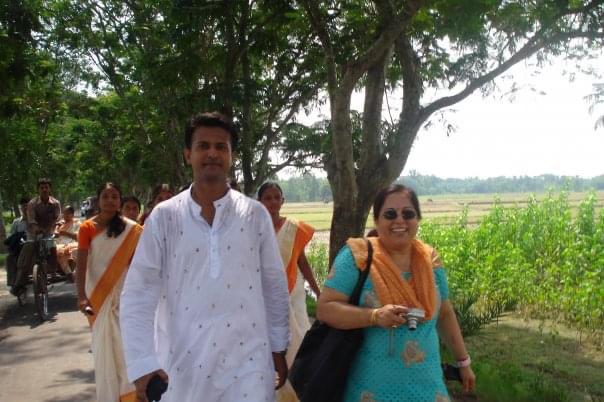The education of girls and women is the backbone of any development which we envision in this country and we must address this with inclusive approach. Inclusive means All, without any bias of any aspect, colour, creed, caste, costume, capacity etc.
4 Es Formula: With the inclusive approach in view, READ India have been using 4 Es formula to translate its vision into action: Empowering, Educating, Employing and Enhancing the skills for holistic development.
Scaling and Deepening the Impact by building grassroots leaders highlight our journey from Andhra to West Bengal, in chronological order, wherein the focus is Life-Cycle Approach: having special programmes for 3-6 years; 7-15 years; 16-25 years; 26-45 years. We have specially designed programs for these age group. The strength of the programme is building grassroots leadership and handing over this responsibility on their shoulders. It’s a tough task though but constant and consistent efforts on handholding, mentoring, listening to their concerns and challenges, enabling them to find possible solutions and overcoming and achieving their small goals have paved the way for them and paid back to us as rewards of our work with them.
Let me introduce the grassroots leaders to you who broke their barriers not by fighting but enabling their families to walk with them.There are many like these, who have made commitment to themselves to focus on their life’s mission.
If given the opportunity these leaders have achieved the following indicators:
For self-transformation:
- Continued their higher education.
- Learnt multiple skills for self-empowerment and build their own capacity.
- Came out of their barriers and doing jobs with READ India.
- Delayed age at marriage.
For the family:
- Economic Development of the family as a whole.
- Continuing the education of their brothers and sisters.
- Providing permanent roof to the family.
For the Society:
- Committed to the cause of community development by reaching to thousands for their holistic development.
The above indicators are not for READ India to showcase but for themselves as these helped them to become leaders forever and set examples for others. We are proud to share the data collated for their brilliant work with them so that the multiplier effect is visible in the long run.
During COVID-19 Pandemic:
Let me share what they have been doing in the field at the grassroots level during COVID 19:
Tough times don’t last, tough people do…
This quote is very true in the current times of COVID-19 crisis that has impacted each one of us personally, professionally, economically, and socially.
How all this happened:
Some key highlights:
- Healthy and deep conversations, direct communications, deep listening, creating platforms for them to share, speak, spell out clearly the challenges.
- Sharing with others and in turn, learning from their experiences. The huge network of communities in India set by READ India is an example for making this learning fruitful.
- Replicating the best practices again helped reaching to the grassroots and enabling them to think through their own journey of development, face the challenges, find solutions, and move ahead.
- Defining their ownership, recognising their efforts, helping them take small but firm steps, build their own future, and set right the things by addressing one by one and helping others with positive thinking and action.
READ India has touched the lives of almost 6,00,000 (6 Lakhs) rural people by setting up Community Library and Resource Centers in rural India.










